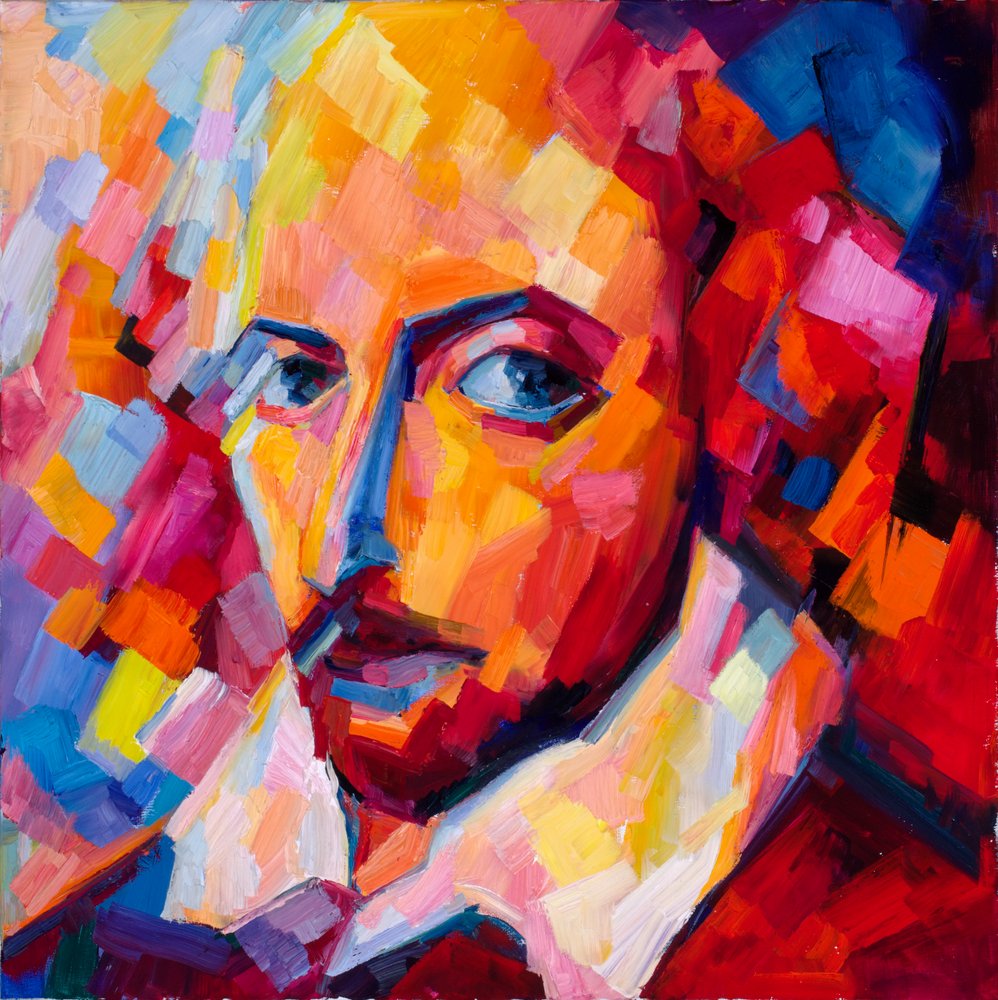
This weekend marked, for me, a huge step in sharing the sonnets series: I have updated my portfolio website to share the sixteen-sonnets composition comprising sonnets from fifty three to sixty eight — a story on the power of Art, Love, and Beauty.
I look at the dates and see that it took me more than a year to complete, from September 2013 to November 2014, and then this half a year of reviewing, photographing, editing, writing, more thinking, and just plain old procrastination before I could share it in its entirety. I am still not quite sure about some of them — I might still return to them later on, but that’s in the nature of this series: the waves and repercussions from painting each sonnet go in both directions, into the future and into the past. For now, they are all there, with all their unexpected compositional links.
It will take more time to edit (and in some cases, write up) the background stories of reading and painting these sonnets (but there is one already published on this blog, on sonnet sixty five). Today it’s just this short story of the very first sonnet in this composition, fifty three.
Reading tends to play tricks the meanings of pronouns: if you read “I”, it temporarily shifts from the author who has written it to you, the reader (as an aside, that’s how pronouns are called in some linguistic theories, “shifters”). In this case, though, the “you” of the sonnet has also, inevitably, shifted: from the addressee of the sonnet to its author. Here is the sonnet:
What is your substance, whereof are you made,
That millions of strange shadows on you tend?
Since every one hath, every one, one shade,
And you but one, can every shadow lend.
Describe Adonis, and the counterfeit
Is poorly imitated after you;
On Helen’s cheek all art of beauty set,
And you in Grecian tires are painted new:
Speak of the spring, and foison of the year,
The one doth shadow of your beauty show,
The other as your bounty doth appear;
And you in every blessed shape we know.
In all external grace you have some part,
But you like none, none you, for constant heart.
if we of this sonnet are actually “we” — his twenty first century audience, then who can be you but Shakespeare himself? Harold Bloom writes in his foreword to “Living with Shakespeare”:
“In my long career as a teacher, I have found that students, interviewers, and fellow readers keep asking me, “Why Shakespeare?” It seems a question as necessary to ask as it is impossible to answer, unless you respond, “Who else is there? Who but Shakespeare has influenced so many creative intellects?” The genealogy includes Milton, Austen, Dickens, Keats, and Emily Dickinson, and many of the strongest writers of our own generation. Who besides Shakespeare has perfected expressions of experience, and broadened and defined the horizons of human possibility?
<…> His is the most capacious of consciousnesses. He comprehends and apprehends realities that are available to us but beyond our ken until he manifests them.
<…> His is an electrical field. Anything entering it will light up, but Shakespeare powers the illumination.
There is no God but God, and his name is William Shakespeare. Yahweh is not God. William Shakespeare is God. Heinrich Heine said, “There is a God, and his name is Aristophanes.” On Heine’s model, I again remark: there is a God, there is no God but God, and his name is William Shakespeare.”
[share title=”If you’ve enjoyed reading this post, please consider sharing it with your friends!” facebook=”true” twitter=”true” google_plus=”true” linkedin=”true” pinterest=”true” reddit=”true” email=”true”]